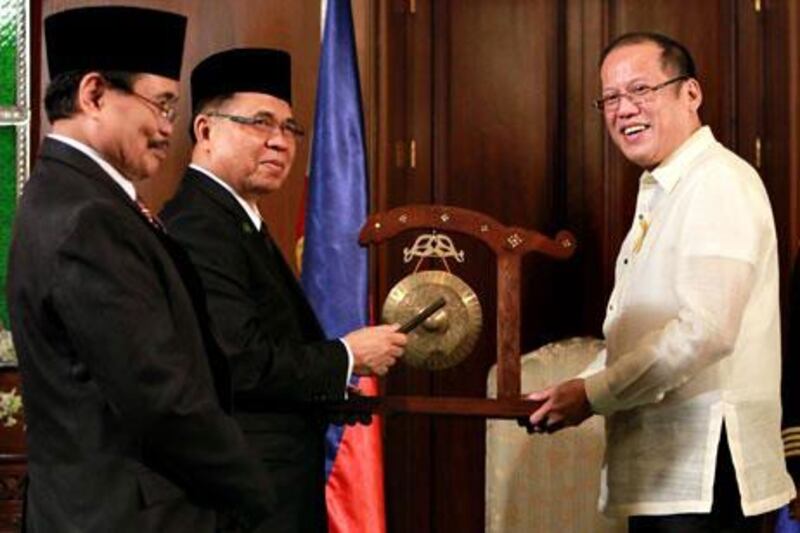MANILA // Muslim rebels and the Philippine government overcame decades of bitter hostilities and took their first tentative step toward ending one of Asia's longest-running insurgencies with the ceremonial signing of a preliminary peace pact today that both sides said presented both a hope and a challenge.
The framework agreement, also called a road map to a final peace settlement that is expected by 2016, grants minority Muslims in the southern Philippines broad autonomy in exchange for ending more than 40 years of violence that has killed tens of thousands of people and crippled development.
It was signed in Manila's Malacanang Presidential Palace by government negotiator Marvic Leonen and his counterpart from the Moro Islamic Liberation Front (MILF), Mohagher Iqbal. Also on hand to witness were President Benigno Aquino III, the rebel chairman Al Haj Murad Ebrahim - who set foot in the palace for the first time - and Malaysian prime minister Najib Razak, whose country helped broker the deal.
"We are men and leaders who want to make a difference and we have decided that the time has come for us to choose the moral high ground," Mr Najib said. He said the deal "will protect the rights of the Bangsamoro people and preserve the sovereignty and territorial integrity of the Philippines."
He cautioned it "does not solve all the problems, rather it sets the parameters in which peace can be found.
"After four decades, peace is within reach," he said.
The 13-page document outlines general agreements on major issues, including the extent of power, revenues and territory granted for a new Muslim autonomous region to be called Bangsamoro in this predominantly Roman Catholic nation.
It calls for the establishment of a 15-member Transition Commission to draft a law creating the new Muslim-administered region. The 11,000-strong rebel army will be deactivated gradually "beyond use," the agreement says, without specifying a timetable.
Mr Aquino also said much work remains to be done and "the devil is in the details," but his government is committed to the country's south.





